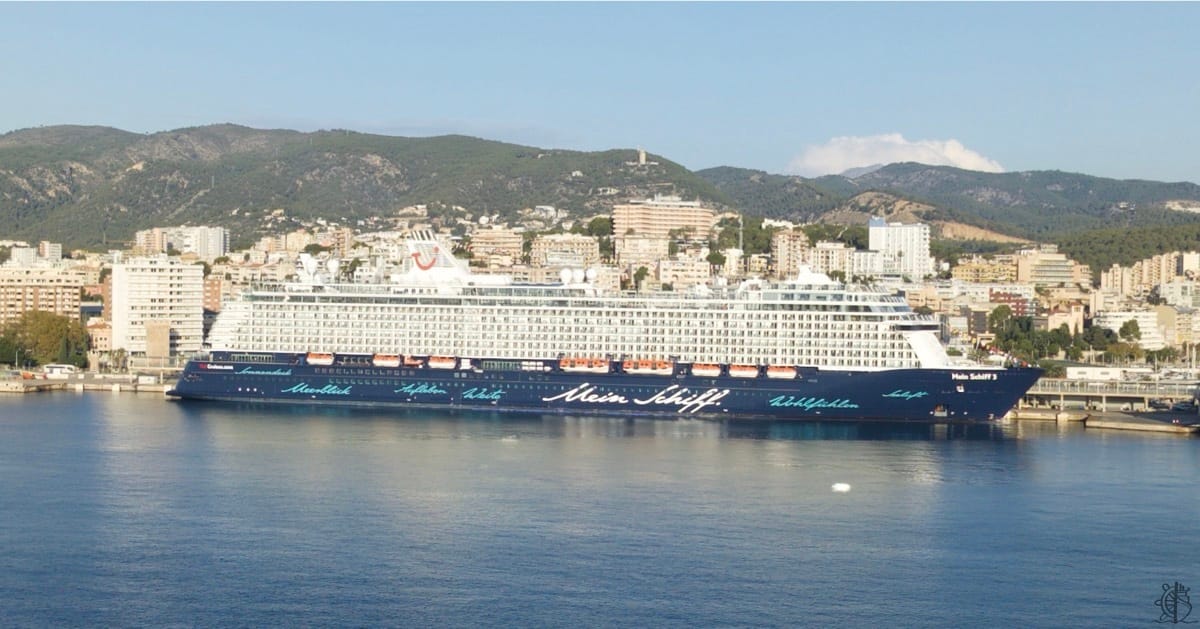TUI Cruises faces legal scrutiny over climate claims

In a significant ruling, the Hamburg Regional Court has declared TUI Cruises' advertising claims regarding its future environmental efforts misleading and deceptive. This judgment, although not yet legally binding, arose from a lawsuit filed by the German Environmental Aid (DUH) concerning TUI's promise of achieving decarbonization by 2050.
The focus of the lawsuit was on the legitimacy of TUI Cruises' long-term environmental claims, prompting scrutiny about the reality of these advertisements. The court pointed out TUI's lack of current initiatives that would support its ambitious future sustainability goals, including its use of liquified natural gas (LNG) and bio-LNG, which the company presented as environmentally friendly alternatives.
The court emphasized that making distant future commitments without concrete actions today could mislead consumers, who increasingly consider a company's current environmental practices when deciding on travel choices. DUH's federal managing director, Jürgen Resch, commented on the ruling, stressing that companies should only promote climate-friendly messages if they can demonstrate genuine ongoing efforts to reduce greenhouse gas emissions.
TUI Cruises, part of the TUI Group, has outlined a thorough plan aimed at achieving carbon neutrality by 2050, reflecting its commitment to sustainability. This roadmap is encapsulated within the broader TUI Sustainability Agenda, which sets ambitious emission reduction targets across the group's operations, including hotels, air travel, and cruises.
As part of its climate initiatives, TUI aims to reduce its overall carbon footprint significantly, targeting a reduction of nearly 28 percent by 2030. TUI's CEO, Sebastian Ebel, underscored the importance of this mission, confirming that the emission reduction targets have been independently validated by the Science Based Targets initiative.
In its efforts to combat climate change, TUI has announced plans to enhance energy efficiency in ship operations, implement fuel-saving route optimization, adopt shore power in ports, and employ alternative fuels. These steps are, in part, aligned with the Paris Agreement goals adopted by nations in 2015, which seek to cap global temperature increases.
Between 2015 and 2019, TUI Cruises reported a 14 percent reduction in carbon emissions. The cruise line is preparing to introduce three new Mein Schiff cruise ships by 2026, which will utilize LNG or bio-LNG sourced from biogenic residual and waste materials.
The Mein Schiff 7, which entered service in June 2024, operates on lower-emission marine diesel, possesses a shore-side power connection, and utilizes catalytic converters to lower nitrogen oxide emissions by around 75%. Further advancements in TUI's fleet are exemplified by the forthcoming Mein Schiff Relax and Mein Schiff 9, scheduled for launch in 2025 and 2026, respectively, both equipped with shore power connections as well.
Given the rising importance of environmental sustainability in the travel industry, TUI Cruises' case highlights the critical need for transparency in corporate advertising. As consumers become more articulate about the environmental impacts of their travel choices, companies will be increasingly pressured to deliver on their promises of sustainability. Furthermore, the ruling sets a precedent that could influence how other companies convey their environmental strategies in the future.
TUI Cruises and Environmental Accountability
The ruling against TUI Cruises reflects a growing trend toward holding companies accountable for their environmental claims. Environmental organizations such as DUH play a crucial role in challenging misleading advertisements and urging businesses to adopt genuine sustainable practices.
TUI's Sustainability Goals
With ambitious goals for carbon neutrality by 2050, TUI Cruises aligns itself with global carbon reduction strategies. The transparency and verification of these claims are vital for maintaining consumer trust and ensuring that the cruise line's future initiatives are not just promises but actionable plans.
Future Plans for the Fleet
Introducing LNG and bio-LNG powered ships is part of TUI's strategy to innovate within the cruise industry. These new vessels aim to cater to an environmentally conscious market while simultaneously contributing to the ship owner's overall carbon reduction commitment.
Impact on Consumer Choices
This landmark ruling sends a clear message to both consumers and the travel industry: that factual advertising regarding environmental practices is paramount. As customers become increasingly aware of the carbon footprint associated with their travel choices, they are likely to favor companies that demonstrate real progress.
Final Thoughts on TUI Cruises' Journey Ahead
In conclusion, TUI Cruises' commitment to achieving carbon neutrality presents a significant shift in the cruise industry. However, the recent ruling draws attention to the essential requirement for businesses to not only set goals but also provide tangible proof of their progress toward these commitments.
FAQs
What are TUI Cruises' carbon neutrality goals?
TUI Cruises aims to achieve carbon neutrality by 2050, with interim targets including a 28% reduction in emissions by 2030.
What was the court's ruling concerning TUI Cruises?
The court ruled that TUI Cruises misled consumers with its future-oriented environmental advertising, lacking concrete immediate measures to support its claims.
What alternative fuels is TUI Cruises planning to use?
TUI Cruises is focusing on utilizing liquified natural gas (LNG) and bio-LNG derived from waste materials and biodiesel.
How has TUI Cruises reduced emissions in the past?
Between 2015 and 2019, TUI Cruises reported a 14% reduction in carbon emissions, progressing towards their overall sustainability goals.
What significance does this ruling hold for the cruise industry?
This ruling sets a precedent for how companies in the cruise industry communicate their sustainability efforts, emphasizing the need for transparency and accountability in environmental advertising.




